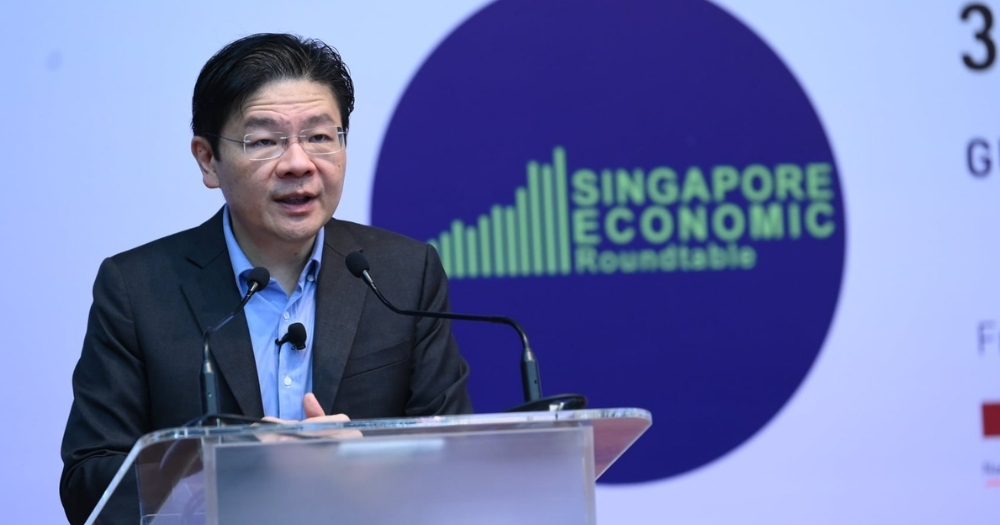Follow us on Telegram for the latest updates: https://t.me/mothershipsg
Speaking at the 35th Singapore Economic Round Table held by the International Policy Studies, Minister for Finance Lawrence Wong said the revised carbon tax will be announced in the next Budget.
The revised carbon tax should kick in in 2024.
Since the establishment of the Carbon Pricing Act on Jan. 1, 2019, the carbon tax has been priced at S$5 per tonne of greenhouse gas emissions (tCO2e) from 2019 to 2023.
Industrial facilities with at least 25,000 tonnes of direct greenhouse gases emissions per year, and consequently registered at taxable facilities, are subject to the carbon tax. They are also required to submit a Monitoring Plan and an Emissions Report annually.
The carbon tax is expected to be reviewed by 2022 to give businesses time to adjust to any revision made.
Carbon price "too low"
Speaking at the Institute of Policy Studies' 35th Singapore Economic Roundtable on Oct. 15, Wong said the carbon price of S$5 per tCO2e is "too low", and its level and trajectory will be reviewed to reflect the cost of carbon, and "influence investment decisions effectively".
The revised carbon tax announced at the next Budget will take effect in 2024 so businesses will have time to adjust. Wong will also provide the trajectory of our carbon tax of up to 2030.
"Cannot afford to skimp on" tackling climate change
The upcoming carbon price revision is one of the key levers for the "green transition" for Singapore's economy, said Wong.
"The government is prepared to make bold moves to transition and future-proof our economy and our way of life."
Wong highlighted that climate change is one of the three key challenges, and an "existential challenge that calls for urgent action", for Singapore.
Climate change "will be a costly affair for Singapore" but Wong stressed that it is a cost that Singapore "cannot afford to skimp on" as it affects the nation's survival and future generations.
"Climate change will be a costly affair for Singapore. But it is a cost we cannot afford to skimp on, for it affects our very survival, and the Singapore that our children will live in. So the Government is prepared to make bold moves to transition and future-proof our economy and our way of life."
Besides revising the carbon tax, there are other investments made to protect Singapore from the impact of climate change.
One instance is the protection of Singapore's coastlines against rising sea levels brought about by climate change, where the government is "prepared to spend up to S$100 billion".
Wong listed other measures such as diversifying Singapore's water supply and considering the import of "green electricity".
Singapore is also taking proactive steps to "decarbonise" its economy, by pursuing new opportunities to grow Singapore into a "sustainable finance hub", developing green urban solutions that can be exported to overseas markets, and investing into the research and development of new technologies like hydrogen and carbon capture.
Besides climate change, the two other key challenges that Singapore faces are inequality and ageing, and all three challenges are "interlinked" and need to be tackled "comprehensively".
"For example, an ageing population can exacerbate inequality, while inequality can make the lower-income more susceptible to the effects of climate change."
Wong assured that these three challenges will be tackled "comprehensively" to reach a "fairer, greener, and more inclusive society".
Related stories:
Top image from Institute of Policy Studies - IPS/Facebook`
If you like what you read, follow us on Facebook, Instagram, Twitter and Telegram to get the latest updates.

